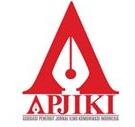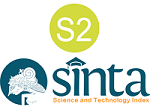Sabilulungan as local wisdom value sustainability plan after the change of leadership in Bandung Regency
Abstract
The leadership of the Regent Dadang Mochamad Naser for two periods, namely the first period in 2010-2015 and the second period in 2016-2021, used the value of local wisdom “Sabilulungan.” Each leader will have a new leadership style in carrying out the organization’s activities. The value of Sabilulungan’s local wisdom as a spirit in carrying out the wheels of development in Bandung Regency has led Bandung Regency to accelerate development in all fields. It has attracted the attention of researchers to examine in more depth the plan for the sustainability of the implementation of the value of Sabilulungan local wisdom in the implementation of public services after the change of leadership. This research approach is a qualitative approach using a case study method. The research paradigm used is the constructivism paradigm. The results of this study found that the leadership change in Bandung Regency adopted and modified the Sabilulungan values that had been applied to the previous leadership. The renewal and improvement of the vision and mission of Sabilulungan to Bedas is an attempt to continue development in Bandung Regency. Leadership changes occurred, but the value of the local wisdom of Sabilulungan will remain eternal as a cultural value for the people of Bandung Regency. The change of value in the new vision and mission to Sabilulungan, which has been with the people of Bandung for a decade, will require a communication effort that starts from scratch. It is necessary to manage the delivery of value messages and media management that is planned and measurable so that the Bedas value can be accepted as an updated value in Bandung Regency.
Keywords
Full Text:
PDFReferences
Ardianto, E. (2016). Metode Penelitian untuk public relations. Bandung: Simbiosa Rekatama Media.
Dharmayanti, G. (2013). The impact of organizational culture in the project selection process: the case of the public infrastructure project in Indonesia. September 2014. https://doi.org/10.13140/2.1.2914.9444
Endyana, C., Hafiar, H., & Mahameruaji, J. N. (2020). Information analysis and the review of research results as a source of knowledge for the mapping of advanced research (bibliometric analysis of the research on the Citarum River ). Library Philosophy and Practice.
Graaf, G. de, & Meijer, A. (2019). Social media and value conflicts: an explorative study of the dutch police. Public Administration Review, 79(1), 82–92. https://doi.org/10.1111/puar.12914
Ikhwan, M., Fares, Y. R., Smith, S., & Colbourne, J. (2001). Conceptual modelling for improving quality of surface water abstraction in Jakarta, Indonesia. https://www.scopus.com/inward/record.uri?eid=2-s2.0-2942513157&partnerID=40&md5=a14cc8425d9584432f61f5a53d83bbb4
Jahidi, I. (2011). Servant leadership dan ethic leadership: tantangan kepemimpinan dalam Pemerintah Indonesia. Prosiding SNaPP, 359–368.
John W Creswell. (2010). Research design: pendekatan kualitatif, kuantitatif, Dan Pelajar, Mixed. Yogyakarta: Pustaka Pelajar.
Kausar, -. (2013). Budaya organisasi pemerintahan daerah Kabupaten Tulang Bawang Lampung. Sosiohumaniora, 15(1), 21. https://doi.org/10.24198/sosiohumaniora.v15i1.5236
Koene, B. A. S. (1996). Organizational culture , leadership and performance in context. In Leadership.
Kusdarini, E. (2016). Pengembangan asas-asas umum pemerintahan yang baik melalui local wisdom keraton Yogyakarta. http://library1.nida.ac.th/termpaper6/sd/2554/19755.pdf
Mcleod, R. H. (2008). Survey of recent developments. Bulletin of Indonesian Economic Studies ISSN:, 44(2), 183–208. https://doi.org/10.1080/00074910802168980
Miminoshvili, M. (2016). The Leadership role in the organizational culture change at local self-government institutions. Dynamic Relationships Management Journal, 5(2), 49–57. https://doi.org/10.17708/drmj.2016.v05n02a04
Mohamad, M., Daud, Z., & Yahya, K. (2014). Impact on employees’good governance characteristics, the role of transformational leadership as determinant factor. International Journal of Science, Environment and Technology, 3(1), 320–338.
Rusmulyadi, & Hafiar, H. (2018). Dekonstruksi citra politik jokowi dalam media sosial. PRofesi Humas, 3(1), 120–140. https://doi.org/10.24198/prh.v3i1.16729
Simons, H. (2014). Case study research: in-depth understanding in context. In P. Leavy (Ed.), The Oxford Handbook of Qualitative Research. Oxford University Press.
Weaver-Hightower, M. B. (2018). How to write qualitative research. In How to Write Qualitative Research. https://doi.org/10.4324/9781315159263
Wouters, P., Zahedi, Z., & Costas, R. (2019). Social media metrics for new research evaluation. Springer Handbooks, 687–713. https://doi.org/10.1007/978-3-030-02511-3_26
DOI: https://doi.org/10.24198/prh.v7i1.37707
Refbacks
- There are currently no refbacks.
Copyright (c) 2022 Heru Ryanto Budiana, Nuryah Asri Sjafirah, Adzkia Kirana Dipa

This work is licensed under a Creative Commons Attribution-NonCommercial-ShareAlike 4.0 International License.
PRofesi Humas Indexed by:



 Editorial Office of PRofesi Humas: Faculty of Communication Science, Universitas Padjadjaran
Editorial Office of PRofesi Humas: Faculty of Communication Science, Universitas PadjadjaranJl. Raya Bandung-Sumedang Km. 21 Jatinangor, Sumedang, Indonesia 45363
WA: +6282316731181 (Chat Only) Telephone: +62227796954
Faxmile: +62227794122
Email: jurnal.profesihumas.fikom@unpad.ac.id
PRofesi Humas Supervised by:

 View My Stats
View My Stats








